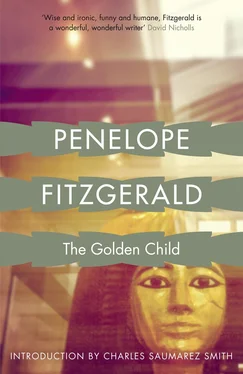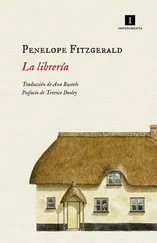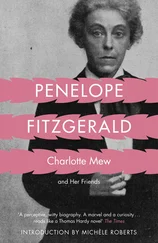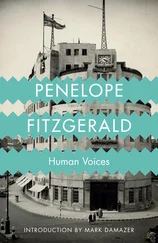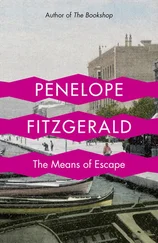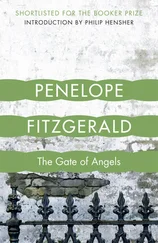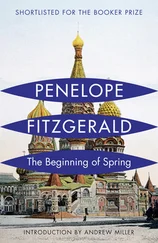‘I’m a moment or two late, you must both forgive me …’
‘It is, as you well know, simply the matter of Sir William’s bequest. The suggestion seems to be that he is not likely to last very much longer?’
The Director gazed at their skull-like faces. How long did they expect to last themselves? But he acknowledged that they were indestructible. They had been there when he came. They would also be there when he left.
Unglazed Ceramics tapped menacingly on the gleaming desk.
‘We take it that the bequest, which it now seems will be very considerable, will be evenly distributed among the departments? This would normally be a matter for the Trustees, but since it is to be administered by you personally …’
‘A rumour is circulating — one might put it higher than that — that expenditure will be concentrated on only one of the Museum’s collections …’
‘… a rumour which is circulating among art dealers and art investment companies …
‘… we, of course, entirely discount it …
‘… but we feel that you are perhaps too busy to realise the general surprise and disappointment at your failure to form a committee …
‘… a small steering committee, on which we are both ready to serve …
‘… to see that the needs of all departments, as far as possible, are fairly considered
Sir John looked at them with unwavering courtesy. He saw them as two old fakirs, one sitting on a pile of rags, the other on a heap of cracked pots and broken earthenware. Even more deeply than ever did he resolve that every penny the Museum could legitimately acquire should go to the superb artefacts of the dix-septième.
The Keeper of Woven Textiles indicated a heavy pile of typescript.
‘I have prepared a kind of aide-memoire, simply indicating acquisitions that might be made in the near future, or even reserved now … there is, in particular, a silk kashan, knotted in 1856 … an important example … a favourable moment … information from Beirut … many Lebanese collectors are de-accessionising …’
‘Excellent,’ said the Director. He particularly hated Oriental rugs, which took up an immoderate amount of display space. ‘It’s good of you to give me a summary of priorities, though naturally I am fairly well aware …’
‘You misunderstand me, John. That is my list; my colleague here has brought his own, of course.’
Of course. Another weight of closely typewritten pages.
‘Can we take it that we have made our point?’
‘Indeed you can. But in any case you can rest assured that I am thinking about the formation of a consultative committee to discuss the preparation of a report to recommend the appointment of a special purchasing committee. The name of Lord Goodman suggests itself. I shall be seeing him this week …’
With practised phrases the Director steered the two gibbering Keepers back towards the dark tomb-like sanctuary from which they had so inconveniently emerged. Miss Rank rose from her place, knowing without request what was needed, to escort them on their way.
Left to himself, Sir John mused that the Exhibition, which had been intended to fulfill so many hopes, was already on its way to distilling bitter hatred, not only on a departmental, but on an international scale. The decision to mount it in London was surely a justifiable one — since the caves had been resealed, Sir William’s book was, and presumably would remain, the only scientific account of the cave burials. But the International Council of Museums had not been consulted. Both Paris and New York had expected priority, and there had been violent recrimination, or, as The Times put it, ‘Discord in the Realms of Gold.’ Once again it had been in mysterious circumstances that the Government of the present Republic of Garamantia had agreed to, or perhaps proposed, the loan of their priceless possessions. Sir William’s name, although he had had absolutely nothing to do with the Exhibition, was again invoked, and it had been uncertain who was paying the bill and even exactly what was happening. A party of harmless experts and a roving BBC newsman were deported from Africa. Then, after further wearing disputes over protocol, handling, packing, supervision and insurance, and a general warning from the Ethics of Acquisition Permanent Committee, the huge cloth-wrapped crates arrived, without any proper notice being given, at Gatwick. In the confusion and secrecy of the landing there had been little chance for the interested world of scholarship to take part. Historians, archaeologists and Garamantologists retreated, grumbling, as the two Keepers had done, into the depths of their professional organisations.
Meanwhile, Marcus Hawthorne-Mannering was preparing himself to have, in his turn, a few words with Sir William.
Hawthorne-Mannering, the Keeper of Funerary Art, was an exceedingly thin, well-dressed, disquieting person, pale, with movements full of graceful suffering, like the mermaid who was doomed to walk upon knives. Born related, or nearly related, to all the great families of England (who wondered why, if he was so keen on art, he didn’t take up a sensible job at Sotheby’s), and seconded to the Museum from the Courtauld, he was deeply pained by almost everything he saw about him. It was said that he was born into the wrong century, but what century could have satisfied the delicate standards of Hawthorne-Mannering? He was very young (though not quite as young as he looked) to get a department, but then it was not the department he wanted; his heart was really in water-colours, not in the coarse objects, often mere ethnographica, of which he must now take charge. His appointment had been, in a sense, an administrative error, or perhaps a last resort; still more so had been the obscure manoeuvres by which the direct responsibility for the Exhibition for the Golden Child, in spite of its numerous consultative, financial and policy committees, had ultimately been landed, nominally at least, on the small Department of Funerary Art. Among the many sufferings of the now terribly overworked Hawthorne-Mannering was the necessity of seeing a good deal of Sir William. He disliked the old man and, again in a sense (this was a favourite phrase of his, shrinking away with a snails’-horn delicacy from complete commitment) he disapproved of him; he didn’t like Sir William’s ill-defined relationship to the Museum structure; he envisaged him, like some antique monster, stretched across the entrance to his opportunities. ‘The position is quite anomalous,’ thought Hawthorne-Mannering, who, though tired-looking himself, dreamed of revitalisation, trendy special exhibitions and so forth. ‘Why is one not surrounded with choicer spirits?’
It was Deputy Security who had asked him to see Sir William. It appeared that there was a certain report on the subject of the Exhibition, circulated at Cabinet level, of which Sir William, out of courtesy, had been sent a copy. It was probable that he had never read it, but since he was known for his tactless generosity in sharing information, and today was Press day, a few words of caution would be advisable. Hawthorne-Mannering had observed acidly that this document, whatever it was, had certainly not been disclosed to mere Keepers of Departments, and asked Deputy Security why he could not speak to Sir William himself. Deputy Security replied that he might look in later, but that with an estimated four thousand five hundred visitors on his hands he was very busy. The grotesque egoism of this left Hawthorne-Mannering speechless.
To reach Sir William’s den-like office he had to encounter the sour looks of Jones, just leaving with a tray of medicines and a brandy-bottle. Then, in the secretary’s room, he found that Dousha Vartarian had arrived. Dousha, curled in creamy splendour in her typing-chair, had the air of belonging completely, like a cat, to the space she occupied; this was in spite of the fact that her family were exiles from Azerbaijan. She was not at all like the Director’s secretary, Miss Rank. She nodded sleepily to indicate to Hawthorne-Mannering that he could pass on and go straight in, but when he did so, he found Sir William’s room empty.
Читать дальше
